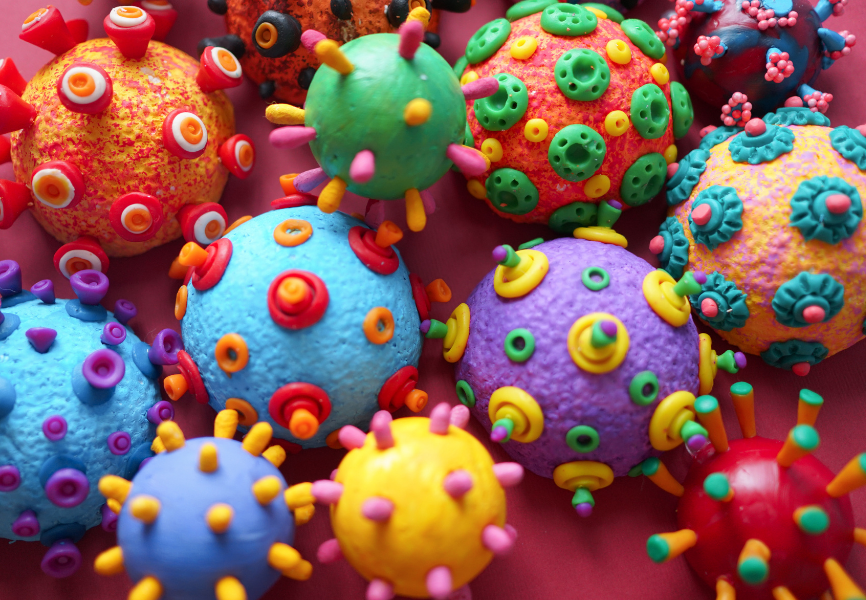Field Notes
By Kristen Vosberg
With pandemic updates dominating news media for the past year, science reporting has moved into the view of journalists and writers across disciplines. more than ever, writers are wondering: is pandemic information being communicated effectively? And if not, what are the consequences? What can be improved and how? Thinking about news media reporting in publications like Scientific American and The Atlantic, there is a push to disseminate information. Of course, it is in the best interest of all parties if that information is accurate, but my impression remains that the pure panic of the pandemic constitutes pressure for media outlets to be the first to publish.
During Spring Quarter 2020, I was wrapping up my B.S. at DePaul, and all over the news was the antimalarial hydroxychloroquine, which showed some promise in treating severe coronavirus infections. Support and criticism of the drug felt weirdly ideological, partisan, and panic-driven in the news media. I remember thinking “Man, if I weren’t busy finishing my B.S. right now, I would be writing about what hydroxychloroquine does and why it’s relevant.” Now, here I am, getting my M.A. and feeling up to the challenge of parsing out the patterns of rhetoric used to communicate ideas about hydroxychloroquine treatment and comparing the rhetoric to that used to discuss Sars-CoV-2 vaccines.
Hydroxychloroquine was touted in ideological circles as a “miracle coronavirus drug”, but so-called-centrist-journalism, it was heavily critiqued as being inappropriate for treating coronavirus. Looking at work published by Scientific American, Wall Street Journal, and Washington Post, the drug was framed almost as quackery, with article headlines reading “My wife and I got coronavirus. Our doctor prescribed us a medication used to treat parasites in livestock”. About half of hydroxychloroquine related headlines sounded neutral, like “Hydroxychloroquine: What we know and what we don’t.” But the other half worked hard to frame the drug as a joke, endorsed heavily by ideological camps. The articles themselves mostly achieved this too, incessantly trying to summarize data coming out of Covid wards administering hydroxychloroquine, knocking it as inconclusive, rendering their vague, conflicting findings invalid.
On average, the words “data” “trial” and “study” came up an average of 8 times per article, which landed at about 1000 words on average. hat was missing though: a fundamental explanation of why hydroxychloroquine could work, and why hospitals are still trying to administer it. The emphasis of articles written about hydroxychloroquine in 2020 was on the inconclusiveness of the data, data pushed out of hospital wards in the height of a deadly pandemic. The inflammatory, totalizing support for the drug voiced by President Trump on Twitter likely incentivised media outlets to frame the treatment as one that showed limited success, fearing the image as ideological subscription aligned with a camp notorious for spreading misinformation.
I think hydroxychloroquine deserved some redemption as a treatment, to the end of supporting professionals who subscribed it mindfully to patients with severe symptoms. Here is the way I would have introduced Hydroxychloroquine:
Have you heard claims that Zinc has antiviral effects and can be a useful supplement in the immune system’s fight against coronavirus? Anti-malaria drug Hydroxychloroquine, approved for use in humans in 1955, is a Zinc ionophore: it helps Zinc gain actress to viruses and prevent their function.
Looking at late 2020-early 2021 writings about the coronavirus vaccine, we see a lot less talk about data in clinical trials, with the words “data” “trial” and “study” came up an average of 3 times per article, which also landed at about 1000 words on average. In general, articles focused a lot on the plan for distributing vaccines, using phrases like “your place in line” and “priority patients”. This is all well and good, as the public audience is no doubt wondering about plans for distribution. In addressing hydroxychloroquine though, news media outlets prioritized the total refute against misinformation that touted the drug as one of miracles. Magical thinking aside, stories covering vaccines don’t seem to offer up information that counters dangerous “anti-vaxxer” ideology. Instead, stories operate under the assumption that the benefits of vaccines are obvious to their audience (they know better!). Even though experts remain concerned about anti-vaccination ideologies, news stories tend to ignore the audience question of “why should I get a Covid vaccine?”
The anti-vaxxer ideology is dangerous, and affects all of us. News media outlets didn’t use their platform to counter misinformation with any vehemence comparable to hydroxychloroquine coverage. In my mind, the record of vaccine misinformation could be addressed by news media by including phrases like “As a reminder, the 1998 paper that claimed an association between vaccines and autism syndrome was deemed fraudulent in 2010, and the physician responsible lost his medical licence that same year”. Just another example that more directly addresses the conspiracies associated with vaccines would be “as a reminder, concentrations of Thiomersal was reduced in all vaccine preparations since 2001, and now stands at an approximate maximum of 1 microgram, around 15% of the average daily mercury intake in the US for adults and 2.5% of the daily level considered tolerable by the WHO.” Misinformation fuelling the antivaxxer conspiracies were simply not addressed in general reports on coronavirus vaccination, despite knowledge that the ideology still holds momentum across the US.
On the whole, science journalism did more to counter misinformation relating to hydroxychloroquine than relating to vaccines, where distribution was emphasized. Even a general principle of vaccination was mostly absent in these articles. Major platforms seem confident that Americans trust doctors about vaccines, but that doctors ought not be trusted to administer drugs taken up by ideological camps as flagship, as a badge of belonging.
*Featured artwork by David Goodsell
